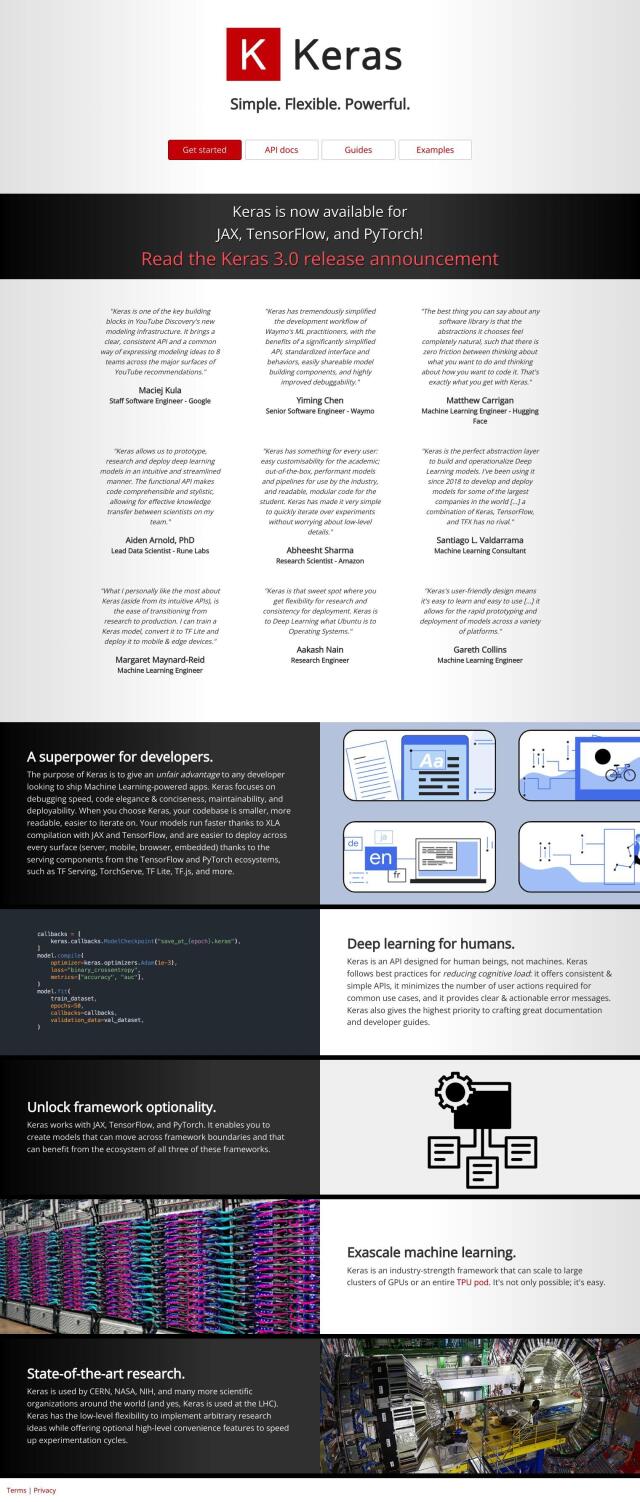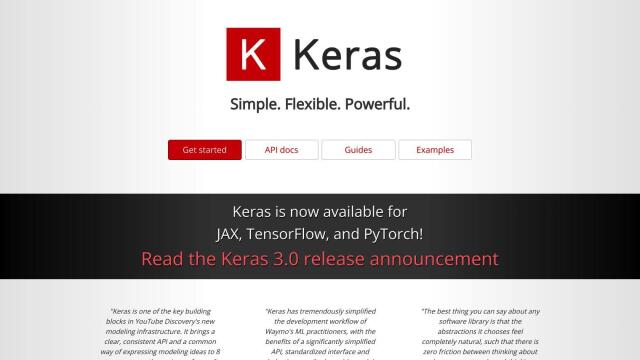Chainer is a flexible, high-level, and easy-to-understand framework for neural networks. It spans the gap between deep learning algorithms and their actual implementation, supporting many different network architectures and per-batch architectures. Chainer's ability to incorporate control flow statements of Python into forward computation without breaking backpropagation makes the code easier to understand and debug.
Chainer supports CUDA computation, letting you tap into GPU power with a minimal amount of code changes. It also supports multiple GPUs with minimal work, which is useful for large-scale deep learning jobs. The framework supports many different architectures, including feed-forward nets, convnets, recurrent nets and recursive nets.
You can install Chainer with pip:
pip install chainer
And run the MNIST example:
wget https://github.com/chainer/chainer/archive/v7.8.1.tar.gz
tar xzf v7.8.1.tar.gz
python chainer-7.8.1/examples/mnist/train_mnist.py
Chainer can be extended with several extension libraries. One of them is for deep reinforcement learning algorithms, and another is a collection of tools for neural networks for computer vision tasks.
Chainer v7 is the latest version, with a number of changes, including:
- ONNX-Chainer Integration: ONNX-Chainer is now integrated into Chainer.
- NHWC Support: Performance improvements for convolutions and batch normalization on GPUs with Tensor Core.
- TabularDataset: Rich abstractions of columnar datasets with pandas-like manipulations.
- CuPy v7: Adds support for NVIDIA cuTENSOR and CUB for better performance and experimental support for ROCm, which means CuPy can run on AMD GPUs.
Please note that Python 2 support has been dropped, and Chainer/CuPy v7 only supports Python 3.5 and above.
Chainer's development is moving to PyTorch, and Chainer v7 is expected to be the last major release. The future development will be limited to bug fixes and maintenance. However, CuPy will be developed independently, and you can use its unique GPU acceleration capabilities with NumPy syntax.
Chainer is a good choice for researchers and developers who want a lightweight and flexible framework for building and implementing deep learning models. Its intuitive design and support for many different architectures make it a good tool for the AI and machine learning world.
Published on August 5, 2024
Related Questions
Tool Suggestions
Analyzing Chainer...







